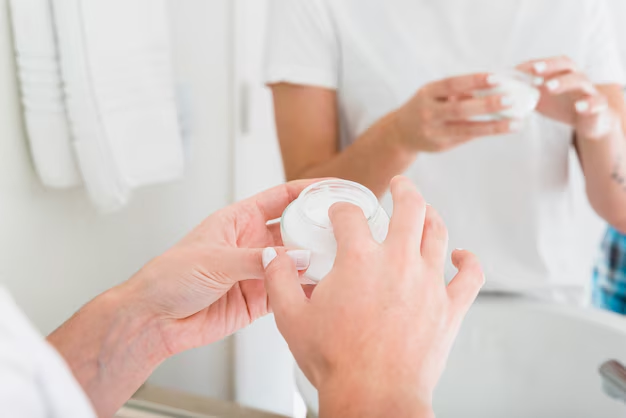Finding Relief from Eczema: Comprehensive Tips and Insights for Healing
Dealing with eczema can sometimes feel like you're in an endless cycle of flare-ups and temporary relief. Whether you've been battling this condition for years or are newly diagnosed, you're not alone if you're searching for effective ways to heal eczema. Below, we'll dive into the various strategies and insights into managing this skin condition.
Understanding Eczema: What Is It and How Does It Manifest?
What is Eczema?
Eczema, also known as atopic dermatitis, is a chronic skin condition characterized by inflammation, redness, and itching. It can appear on any part of the body, but it commonly affects the hands, feet, face, and behind the knees. Eczema isn't contagious, but it can be incredibly uncomfortable and persistent.
Identifying Triggers
One of the key steps in managing eczema is understanding what triggers your symptoms. Among common triggers are:
- Environmental factors: Pollutants, cold, dry air, or damp conditions
- Allergens: Dust mites, pollen, pet dander
- Irritants: Soaps, detergents, fragrances
- Stress: Emotional stress can exacerbate symptoms
- Diet: Certain foods like eggs, nuts, or dairy may worsen eczema in some individuals
Symptoms of Eczema
The symptoms of eczema can vary depending on the severity of the condition. Typical signs include:
- Itching: Often intense, and can be worse at night
- Red to brownish-gray patches: Particularly common on the hands, feet, wrist, and bend of the elbows and knees
- Small, raised bumps: These can leak fluid if scratched
- Thickened, cracked, or scaly skin: Chronic scratching can lead to these signs
Effective Strategies for Managing Eczema
Daily Skincare Routine
A consistent skincare routine is crucial for managing eczema. Here are some tips to incorporate:
- Moisturize regularly: Keep your skin hydrated to prevent dryness that can lead to flare-ups. Use a thick, fragrance-free moisturizer immediately after bathing.
- Avoid hot showers: Opt for shorter, lukewarm showers to prevent stripping your skin of its natural oils.
- Use gentle cleansers: Choose unscented, soap-free cleansers to minimize skin irritation.
Diet and Nutrition
While diet isn't the sole cause of eczema, there are dietary factors that may help manage it:
- Anti-inflammatory foods: Foods like fatty fish, leafy greens, and fruits can help reduce inflammation.
- Avoid potential allergens: If you suspect certain foods trigger your eczema, try an elimination diet under professional guidance to identify culprits.
- Stay hydrated: Drinking plenty of water helps maintain skin moisture.
Alternative Therapies
Some individuals find relief through alternative methods, though these vary in effectiveness:
- Natural oils: Coconut oil and sunflower oil may help soothe eczema symptoms.
- Herbal remedies: Some find chamomile or calendula creams helpful, though it's important to patch-test any new treatment.
- Probiotics: Research suggests a healthy gut microbiome can influence skin health.
Integrating Lifestyle Changes
Stress Management
Stress is a known trigger for eczema flare-ups. Here are some strategies to manage stress:
- Mindfulness and meditation: Techniques like deep breathing, yoga, and meditation can reduce stress.
- Time management: Organizing your day and prioritizing tasks can help lower stress levels.
Allergen Control
Minimizing exposure to allergens can be beneficial:
- Dust mites: Use mite-proof mattress and pillow covers, and wash bedding in hot water.
- Pet dander: Regularly bathe pets and vacuum frequently to reduce dander.
Regular Exercise
While sweat can irritate eczema, exercise itself is beneficial:
- Choose low-sweat activities: Swimming or yoga may be less irritating compared to more intense sweating from running or cycling.
- Shower promptly after workouts: To remove sweat and avoid irritation.
When to Seek Professional Advice
Understanding when to consult a healthcare professional is important in managing eczema effectively. If you're experiencing severe symptoms or if lifestyle changes haven’t improved your condition, consider seeking professional guidance. Doctors can recommend personalized treatments or medications such as topical corticosteroids or non-steroidal topicals.
Final Insights
Healing eczema involves a multi-faceted approach that includes lifestyle adjustments, skin care, dietary considerations, and, sometimes, medical treatments. It's essential to be patient and persistent when managing this condition, as it requires time to understand what works best for your skin. Remember, every individual is different, and figuring out how to manage eczema is a personal journey.
🌟 Key Takeaways & Practical Tips 🌟
- Consistent Moisturizing: Apply fragrance-free moisturizers often to keep skin hydrated.
- Trigger Awareness: Identify and avoid triggers like specific foods and stress.
- Balanced Diet: Incorporate anti-inflammatory foods and stay hydrated.
- Gentle Skin Care: Use mild cleaners and avoid hot water when showering.
- Stress Techniques: Practice mindfulness or yoga to diminish flare-ups.
- Consult Professionals: For persistent symptoms, seek medical advice for a tailored management plan.
- Monitor Environment: Use hypoallergenic products and control allergens at home.
By implementing these strategies, you can take important steps towards managing eczema effectively, reducing flare-ups, and improving your quality of life. 😊

